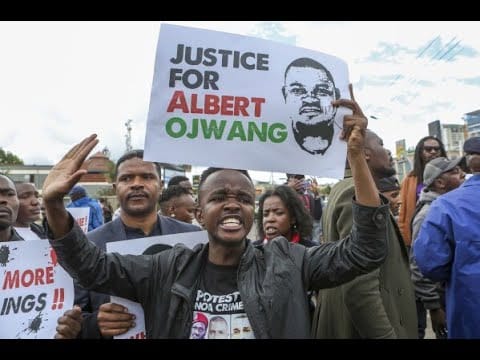An autopsy report on the death of Kenyan influencer Albert Ojwang’ has punched holes in the official police narrative, revealing that the 22-year-old died from torture and strangulation while in police custody.
Contrary to initial police claims—which ranged from vague statements about “medical complications” to suggestions of self-harm—the postmortem conducted by an independent pathologist concluded that Ojwang’s injuries were consistent with deliberate assault and “unlikely to have been self-inflicted.” The pathologist cited blunt force trauma and asphyxiation marks, raising serious concerns about torture.
Ojwang’s family, civil society organizations, and digital activists have accused the National Police Service of attempting a cover-up. “They are insulting our intelligence with conflicting statements while ignoring the evidence staring them in the face,” said one family member during the emotional body viewing event in Nairobi.
The #JusticeForAlbertOjwang movement, which has gained significant traction online, is now demanding a transparent investigation and the immediate suspension of the officers involved.
This latest development adds to a growing list of deaths in custody that have raised alarm over police brutality and impunity in Kenya. With public confidence in law enforcement at a historic low, activists argue that Ojwang’s case must not be swept under the rug like so many others.
“This is no longer just about Albert. This is about all of us. If we don’t get justice now, who’s next?” read one placard held during a vigil outside City Mortuary.
As pressure mounts, human rights groups are urging the Independent Policing Oversight Authority (IPOA) to take swift action—and for Parliament to finally pass stalled police reform legislation.


